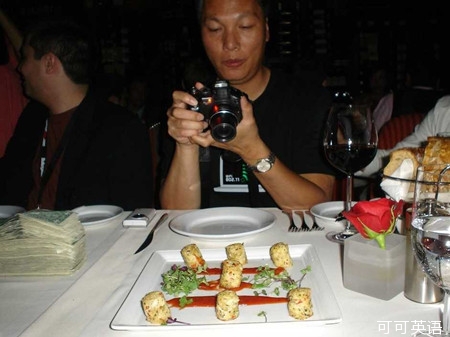
Friends who seem to post a photo of every meal they eat on Instagram or Twitter may not just be annoying, they may have a problem.
The trend of "foodstagramming" has bothered some restaurants to the point they have prohibited diners from snapping photos of their meals. But Dr. Valerie Taylor, chief of psychiatry at Women's College Hospital at the University of Toronto, argues that obsessively documenting one's meals could be a signal of a larger dieting problem.
"I see clients for whom food has become problematic, and they struggle to go out and not have food be the key element of all social interaction: what they eat, when they ate, when they are going to eat again," Taylor told The Huffington Post.
Taylor spoke at the Canadian Obesity Summit in Vancouver last week about eating disorders and food's role in our culture. While Taylor admitted that sharing photos of food on social media is relatively common, she said that in some cases it can come at the exclusion of everything else.
"The concern becomes when all they do is send pictures of food," Taylor told HuffPost. "We take pictures of things that are important to us, and for some people, the food itself becomes central and the rest -– the venue, the company, et cetera -- is background."
While Taylor argues that producing such images may signal an unhealthy preoccupation with food, others have linked the consumption of food photography to eating issues and weight gain. Television host Mehmet Oz did a segment on his show, "Dr. Oz," in October arguing that "food porn" was making society fatter. Oz was referring to people who viewed glossy photographs, such as those in magazines and on blogs, but Food & Wine's Gail Simmons said food photography is nothing new, since her employer's been doing it for decades.
However, Taylor isn't just focused on Instagram users. She noted in her speech that food tattoos send a similar warning sign.
"I think for some people it highlights how important food has become," Taylor said. "Just like the tattoos of 'I love McDonald's' replacing the 'I love Mom' tattoo, food is taking on a very important role. It has moved beyond simply fuel."
A 2012 study carried out by the University of Southern California found that spending a lot of time looking at appetising food online stimulated the brain and causes people to eat too much.
-












